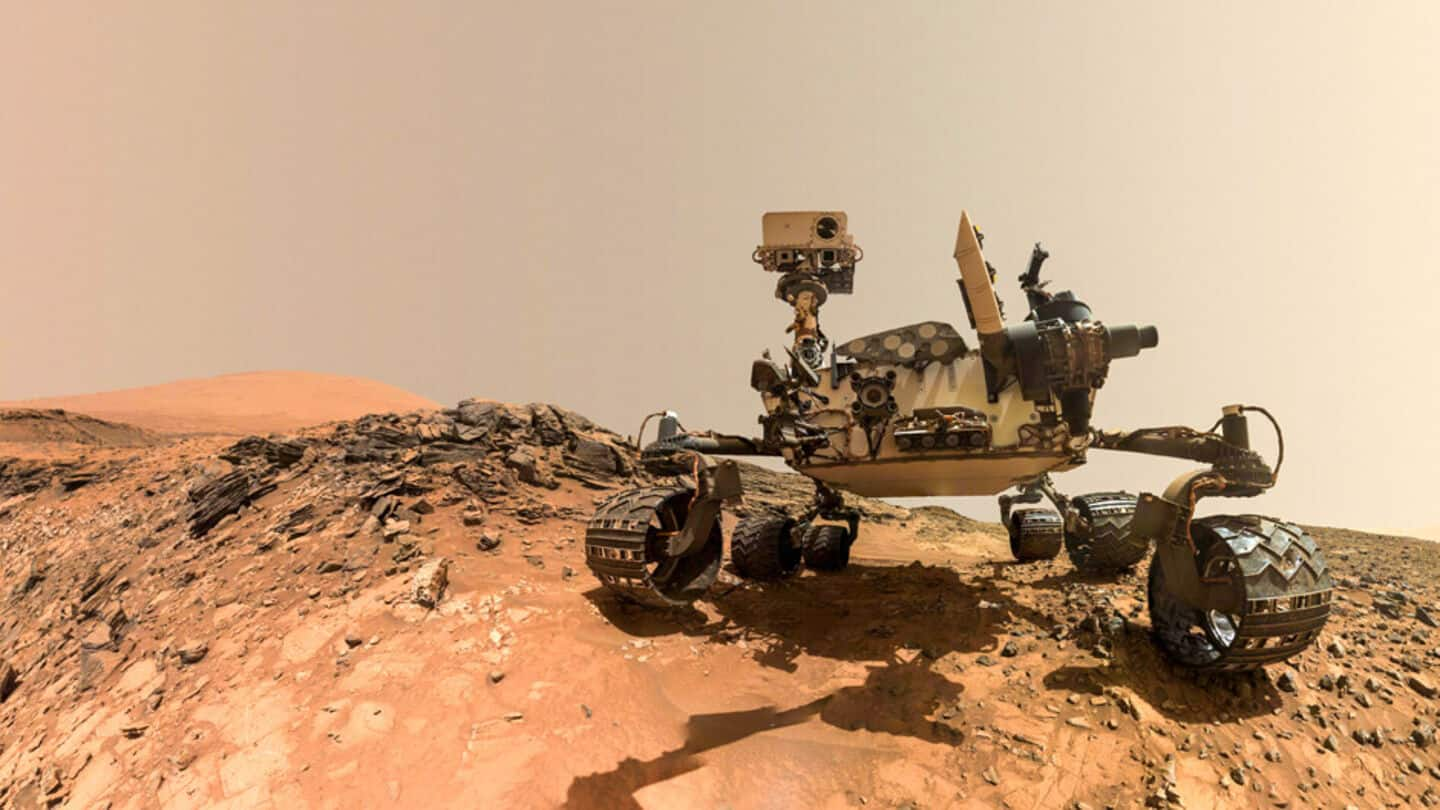
NASA's Curiosity rover makes a surprise discovery on Mars
What's the story
NASA's Curiosity rover has made a groundbreaking discovery on Mars, uncovering pure elemental sulfur for the first time. The find was made in the Gediz Vallis Channel, an area already known to contain sulfate minerals. Sulfates are salts formed when sulfur combines with other minerals in water and then evaporates. This new discovery of pure sulfur suggests that there may be more of it present in the Gediz Vallis Channel than previously thought.
Accidental find
Accidental discovery made by Curiosity rover
The discovery of pure sulfur was made when the Curiosity rover accidentally cracked open a rock while exploring the Gediz Vallis Channel. The unremarkable-looking rock revealed yellow crystals of elemental sulfur, also known as brimstone. This is the first time pure sulfur has been found on Mars, even though sulfates are common in this region.
Sulfur abundance
Finding an oasis in the desert
The Gediz Vallis Channel is home to many rocks that look like the sulfur rock Curiosity crushed. This suggests that elemental sulfur could be plentiful in some areas of the channel. "Finding a field of stones made of pure sulfur is like finding an oasis in the desert," said Ashwin Vasavada, Curiosity project scientist at NASA's Jet Propulsion Laboratory (JPL).
Life's building blocks
Key element for all life
Sulfur is a key element for all life, usually taken up as sulfates to form essential amino acids needed for protein synthesis. While the discovery of sulfates on Mars isn't new, the presence of pure sulfur raises questions about its origins and implications. The next step involves understanding how this sulfur came to be on Mars, possibly through detailed modeling of the planet's geological evolution.